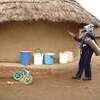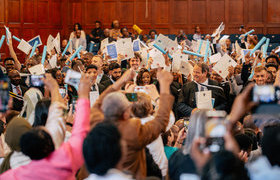A journey of curiosity, healing, and hope
28 March 2024 | Story Thandile Xesi. Photos Supplied. Read time 6 min.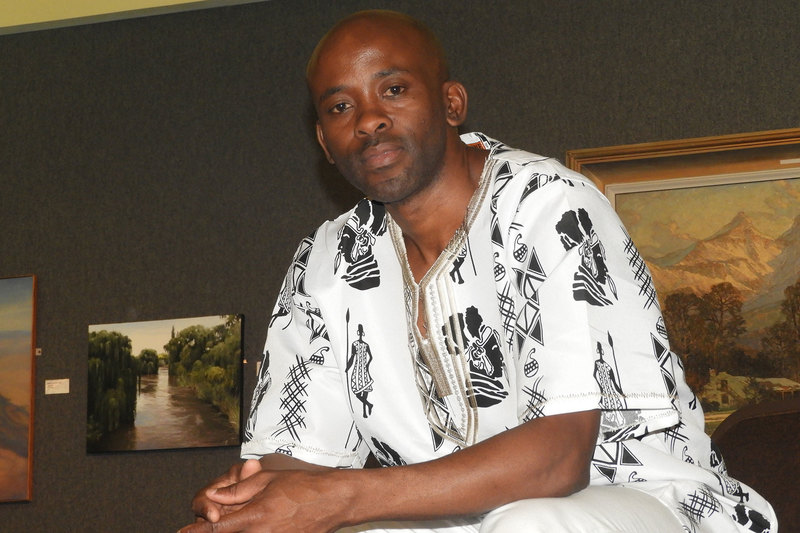
Umana Niwenshuti, amid grief from family loss and being far away from home, persevered and graduated with a PhD in Anthropology from the University of Cape Town (UCT) on Monday, 25 March.
Born in Rwanda, Umana’s upbringing instilled a deep curiosity for diverse subjects, shaped by his mother’s guidance and his father’s influence. Tragically, the 1994 genocide in Rwanda marked a profound shift, directing his focus towards art, culture, and social healing.
“Growing up, I played a lot with other children. Most of the time, I used to play the role of either a medical doctor, space scientist, pilot, an artist, or educator (professor),” said Umana.
His upbringing steeped in diverse cultures and personal encounters with tragedy might suggest a path towards storytelling or advocacy. However, his journey diverged when he discovered a profound passion for anthropology and the study of human society and culture. Despite facing numerous challenges, including the loss of his parents and the distance from family, he persisted in his studies.
Overcoming challenges away from home
Umana’s academic journey has been marked by resilience and determination, as he faced the daunting challenge of being away from his family for an extended period.
“The main challenge I faced while studying [towards my] PhD was to be away from family for a long time,” he said.
Yet, amid the challenges, he found solace in the enriching experiences offered by South Africa.
“Studying in South Africa exposed me to diverse perspectives and deepened my understanding of social dynamics.”
Titled “Museum, Memory, and Mental Health: Making sense of Contestation over the Interpretation of Violence in Contested Spaces”, his PhD research explored how societies navigate and interpret violent pasts, particularly focusing on the phenomenon of contestation and its impact on collective memory and social healing.
“I was fascinated by how we make meaning of violent pasts and how these difficult pasts and related legacies are inherited and inform our interpretations, imaginations and actions,” he explained.
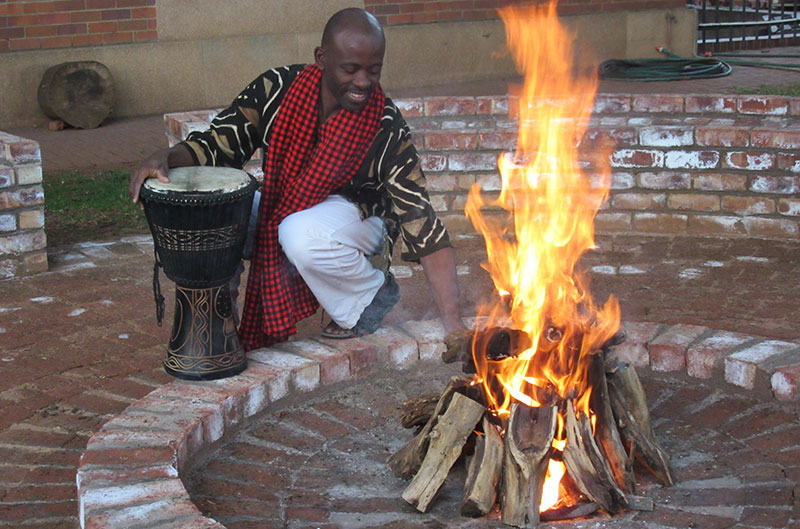
Umana’s academic pursuits were further fuelled by a desire to honour the memory of his late mother, who passed away from cancer during the COVID-19 pandemic.
“I dedicate my PhD to her memory, and to the memory of my father and to everyone we lost in 1994,” Umana added.
“My father and a hundred members of my family, and many friends and neighbours, lost their lives to the genocide against the Tutsi in 1994. Surviving and trying to make sense of what happened marked a big turning point in my life and interests.”
International recognition
As Umana navigated the rigours of his PhD studies at UCT, accolades illuminated his path. Underscoring the juxtaposition of triumph amid the challenges of doctoral pursuits, Umana described these accolades as “unexpected”.
“Some of the awards I received were unexpected,” said Umana.
From the Merit Award from UCT to prestigious fellowships from organisations like the Wenner-Gren Foundation for anthropological research, each accolade served as a testament to Umana’s dedication and perseverance.
“It brings much joy to win a post-PhD grant before my PhD graduation takes place!”
He remains grateful for the opportunities these awards have afforded him, enabling him to conduct research and share insights on a global stage.
“They make it possible to deepen our understanding and ask more relevant questions,” he added.
Research impact
Umana’s work holds immense promise for fostering understanding and healing.
“My PhD [is] significant to the areas of memory, mental health, violence and representation,” he said.
As he endeavours to make his findings widely accessible, Umana’s aspirations extend beyond academia, aiming to cultivate a culture of empathy and collaboration.
“Understanding and addressing challenges requires naming them first. Anthropology holds significance in confronting contemporary issues by leveraging its diverse concepts, methods, and historical insights to tackle resilient and complex challenges head-on.”
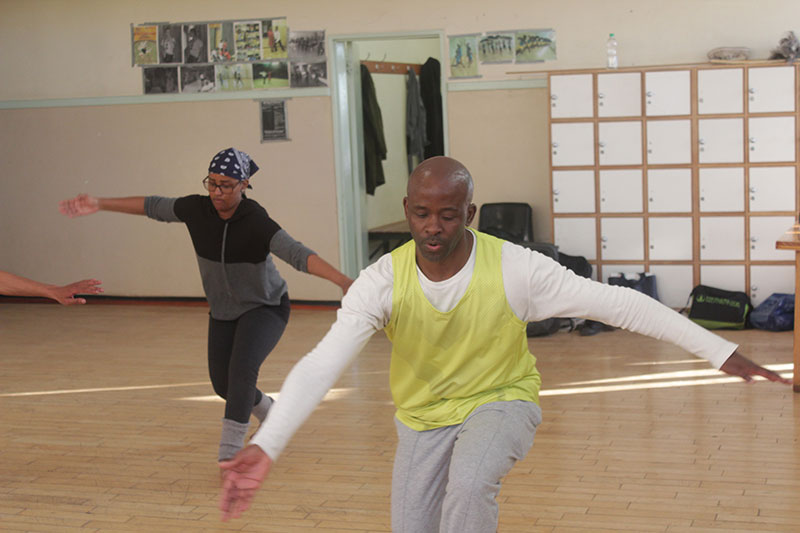
“I aspire to contribute to anthropological and scientific pursuits that prioritise ethics of care and humanity, fostering a world where co-belonging and co-creation enable life, peace, healing, and flourishing.”
Words of advice
Umana urges young scholars to delve into his forthcoming PhD book, slated for release next year. “My first advice would be to invite them to read my PhD, especially the book form when it is out hopefully next year, and then chat to me,” he said.
Reflecting on the changing landscape of academia, he urged a re-evaluation of traditional approaches. “With technological advances, economic shifts and related challenges, it is important to re-imagine how we do PhDs.”
Umana stressed the importance of understanding one’s motivations. “I had my ‘why’, and this led me to finding the ‘what’ and how I wanted to do it.”
Emphasising mental well-being, he said, “I would advise them not to lose sight of their mental well-being and the mental well-being of the research participants and spaces they would be studying.”
He concluded, “At the end of their studies, they should rejoice and take pride in having had a rounded and fulfilling experience.”
 This work is licensed under a Creative Commons Attribution-NoDerivatives 4.0 International License.
This work is licensed under a Creative Commons Attribution-NoDerivatives 4.0 International License.
Please view the republishing articles page for more information.




